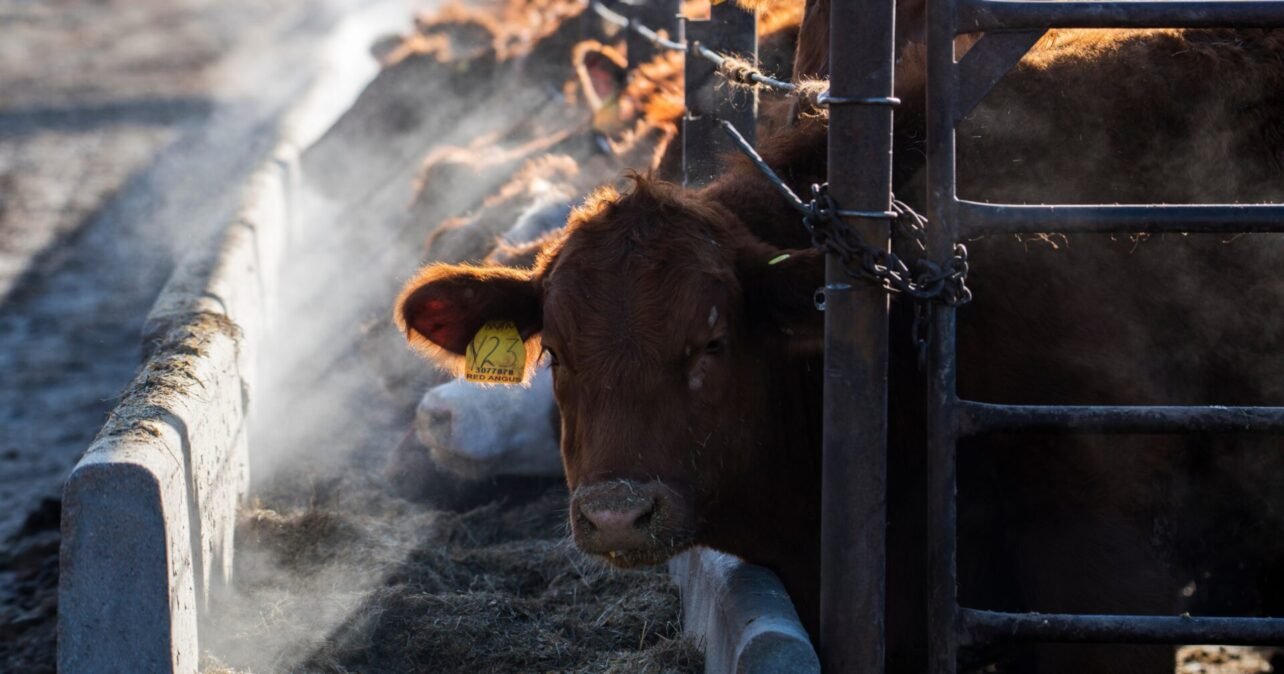Share
State regulators are set to renew a Clean Water Act general permit that governs concentrated animal feeding operations (CAFOs) in Nebraska. This is the primary permit that regulates CAFOs and their effects on water quality—but it’s not strong enough.
The Nebraska Department of Environment and Energy (NDEE) has agreed to hold a public hearing regarding the permit in Lincoln, Nebraska, on September 29 at 7:00 p.m. CT. This is our chance to call for stricter oversight of industrial livestock operations and tell regulators the permit needs to be stronger to protect Nebraska’s water and public health.
Attend the public hearing, email or mail your comments to NDEE before the hearing by September 28!
NDEE’s five-year renewal of this permit gives Nebraskans a rare opportunity to provide input on how the state’s CAFOs are regulated.
The permit regulates factory farms that discharge—or are likely to discharge—waste into the state’s waterways. It governs several aspects of CAFO operations, including which factory farms are even regulated, and their management practices, land applications of animal waste, and monitoring and reporting requirements.
The permit lacks transparency and accountability. It doesn’t go far enough to address factory farm pollution, which threatens human and environmental health.
What’s wrong with the permit?
- Too narrow. Currently, the draft permit is only given to large cattle CAFOs when it should be applied to CAFOs of any size and species that discharge. That’s hundreds of Nebraska CAFOs that are unregulated under federal law Clean Water Act standards.
- No accountability for waste transfers. Once a CAFO exports waste to another entity, NDEE doesn’t track it. It just goes “away.” Transparency and accountability are critical to protecting Nebraska’s waters from waste runoff and groundwater contamination.
- Doesn’t protect against nutrient pollution of waterways and groundwater. Inadequate manure application protections, a lack of timely reporting requirements, and lack of Nutrient Management Plan enforcement put the public and Nebraska’s waterways at risk.
How to take action:
- Bring your questions and concerns to the hearing. NDEE will hold a Q&A session Thursday September 29 from 4:30 p.m. to 5:30 p.m., followed by a public hearing at 7:00 p.m. at the NDEE Lincoln Office at 245 Fallbrook Blvd, Lincoln, NE 68521. (Participants must register by 5:00 p.m. on September 28).
- Email comments by 5:00 p.m. on September 28 to National Pollutant Discharge Elimination System (NPDES) at NDEE.moreinfo@nebraska.gov.
- Mail your comments by 5:00 p.m. on September 28 to NPDES & State Permits Section, P.O. Box 98922, Lincoln, NE 68509.
SRAP has submitted more technical and substantive comments that can be viewed here.
Feel free to use the sample comment provided below or write your own.
Sample comment:
Dear NPDES,
I am [insert name], a Nebraska resident and I live in [insert Town/County/Watershed/Region]. I’m writing to urge you to please strengthen the state’s proposed NPDES general permit for concentrated animal feeding operations (CAFOs).
The CAFO NPDES permit is supposed to protect water quality and prevent water pollution from all different kinds of chicken, dairy, cattle, and pig operations. But as written, the CAFO NPDES permit only applies to cattle operations, treats the increasing number of corporate mega-CAFOs the same as CAFOs with 1,000 to 10,000 head, and leaves medium cattle operations unregulated.
NDEE should be gravely concerned with our state’s water quality issues. Failure to robustly regulate our state’s CAFO industry will result in further pollution to our waterways. We urge NDEE to use this NPDES CAFO permit cycle as an opportunity to strengthen water quality protections for all of Nebraska.
Sincerely,
[insert name]

